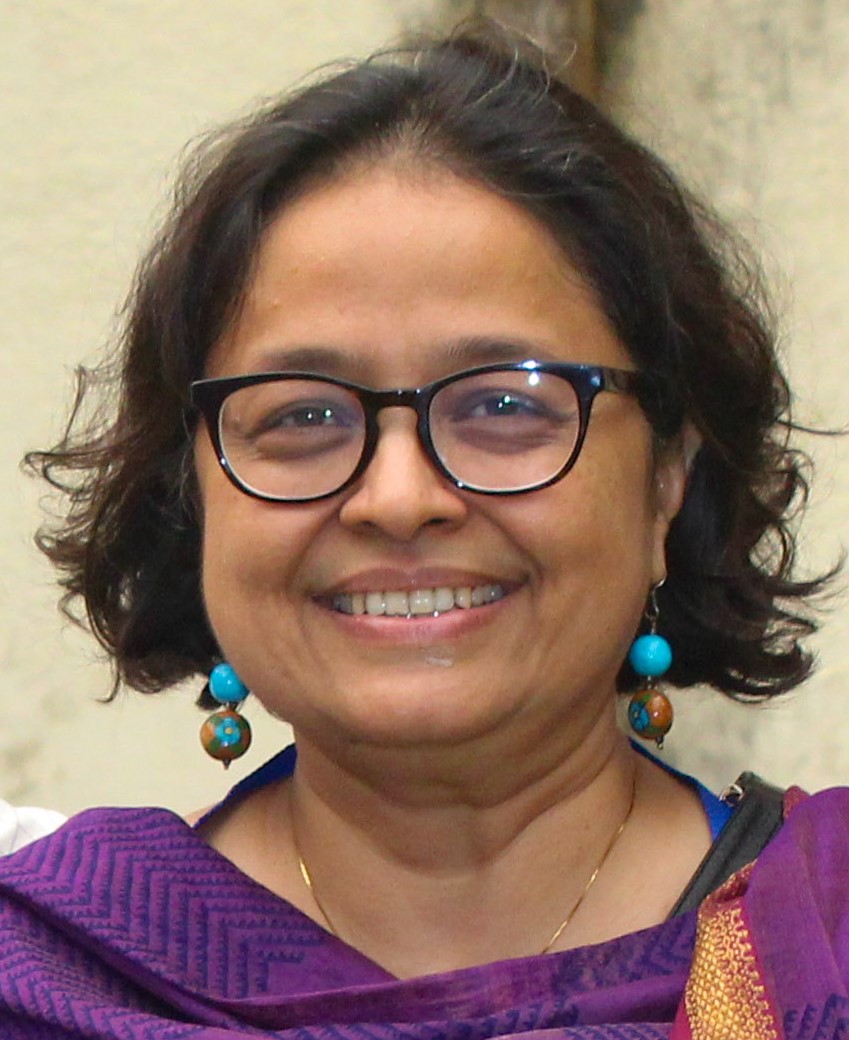Department of Sociology

Prof. Anuja Agrawal
Head-Department of Sociology
Delhi School of Economics
Introduction
The Department of Sociology was established by the University of Delhi in 1959 as a constituent of the Delhi School of Economics under the leadership of eminent sociologist Professor M. N. Srinivas. It developed excellence in teaching and research under the guidance of stalwarts who established the discipline in India: Profs. M. S. A. Rao, Andre Beteille, A.M. Shah and J.P.S. Uberoi in the 1960s, and Profs. B.S. Baviskar, Anand Chakravarti, E. A. Ramaswamy and Veena Das subsequently. This intellectual legacy was taken forward by renowned scholars who helmed the department subsequently: Profs. Aneeta A. Minocha, Virginius Xaxa, Tulsi Patel, Meenakshi Thapan, Rajni Palriwala, Nandini Sundar, Satish Deshpande, Abhijit Dasgupta and Roma Chatterji, and Sudha Vasan is the Head since April 2021.
The Department has pioneered several fields of study which have now become essential to the discipline, and designed courses for its Masters students that have become the prototype for teaching sociology across India. To begin with, the Department trained students for two courses: M.A. and Ph.D. In 1966, a two-year M.Litt. course was introduced, which continued since 1976 till recently as a M. Phil. degree. In 1968, the Department was recognized as the sole Centre of Advanced Study (CAS) in Sociology by the University Grants Commission (UGC) and completed 50 years of continuous CAS status in 2018. At present, the sanctioned strength of the faculty includes seven Professors, ten Associate Professors, nine Assistant Professors, and three Research Associates, and 10 sanctioned office staff.
The Department draws students from all regions of India, South Asia and beyond for all its courses and offers them a coordinated teaching and research programme. From its very inception, the Department has encouraged a view of learning in which students are given an opportunity to participate actively in discussions. Classroom lectures and student-teacher interactions are supplemented with an active tutorial programme. Small groups of students have weekly meetings with tutors to discuss particular topics and readings, where individual needs and interests of students are assessed and supported. Each student writes an essay for each course every semester and receives continuous feedback. In addition, in the last three years, an innovative Academic Reading and Writing workshop-style course has been introduced for MA students entering the department providing training in this essential skill, and several new courses in emerging areas are continuously added to the syllabus.

We have a robust research training program that has produced nearly 500 M. Phil. dissertations and more than 185 Ph.D. thesis, and many of our alumni continue research and teaching in Universities across the world. Our PhD scholars have done fieldwork in many parts of India and the world and theses submitted in our department have been published as well-received books. Our alumni have distinguished themselves in a wide variety of fields such as social service, administration, policy making, entrepreneurship, arts and culture, journalism, as well as teaching and research enriching the discipline of sociology. The department has actively associated with academic institutions across the world, with several collaborative research projects, exchange of faculty and students, and developing comparative sociology. Distinguished scholars from India and abroad regularly visit and deliver lectures and seminars in the Department, some of them as Visiting Professors and Fellows. Following Srinivas' footsteps, the Department has cemented a distinct tradition of rich, ethnographic work that raises and responds to critical questions about the times we live in. Department faculty are actively engaged in research in diverse areas such as family and kinship, education, political movements, affirmative action, caste, religion, political ecology, urban life, agrarian structure, development and environment, etc.(details available at www.sociology.du.ac.in) that have been widely published as books and articles in recognized journals. Significant studies have been published by faculty on community power structures, local-level politics, trade unions, co-operatives, textual and contextual studies of Hinduism, religious symbolism, family and kinship, social and religious movements, and environment and society.
Research contributions of the department are recognized in the fields of stratification, gender, sociology of development, environment, historical sociology, urban sociology, the sociology of collective violence, medical sociology, sociology of masculinity, demography, popular and visual cultures, education, migration, and documentary practices of the state among others. Faculty have been associated with the Indian Council of Social Science Research (ICSSR) and the UGC in preparing surveys of research and teaching in the discipline. Department faculty are active in national and international sociological associations, including serving in administrative roles of these professional associations and are members of editorial boards of reputed journals. Department faculty regularly organize and participate in national and international conferences, seminars and workshops to disseminate research and develop the discipline. The also engage with society by publishing and speaking in popular and public fora. The Department Friday Colloquium is recognized as one of the oldest continuously running forum for discussion of on-going sociological research, and it attracts distinguished and emerging scholars to present and discuss research. The Department of Sociology has created history by ranking 91 globally in the QS World Ranking released in 2023.
Further details about the department can be accessed at www.sociology.du.ac.in